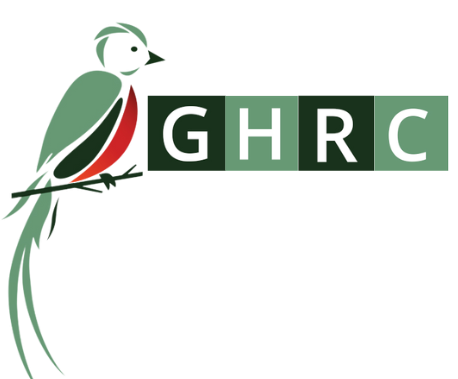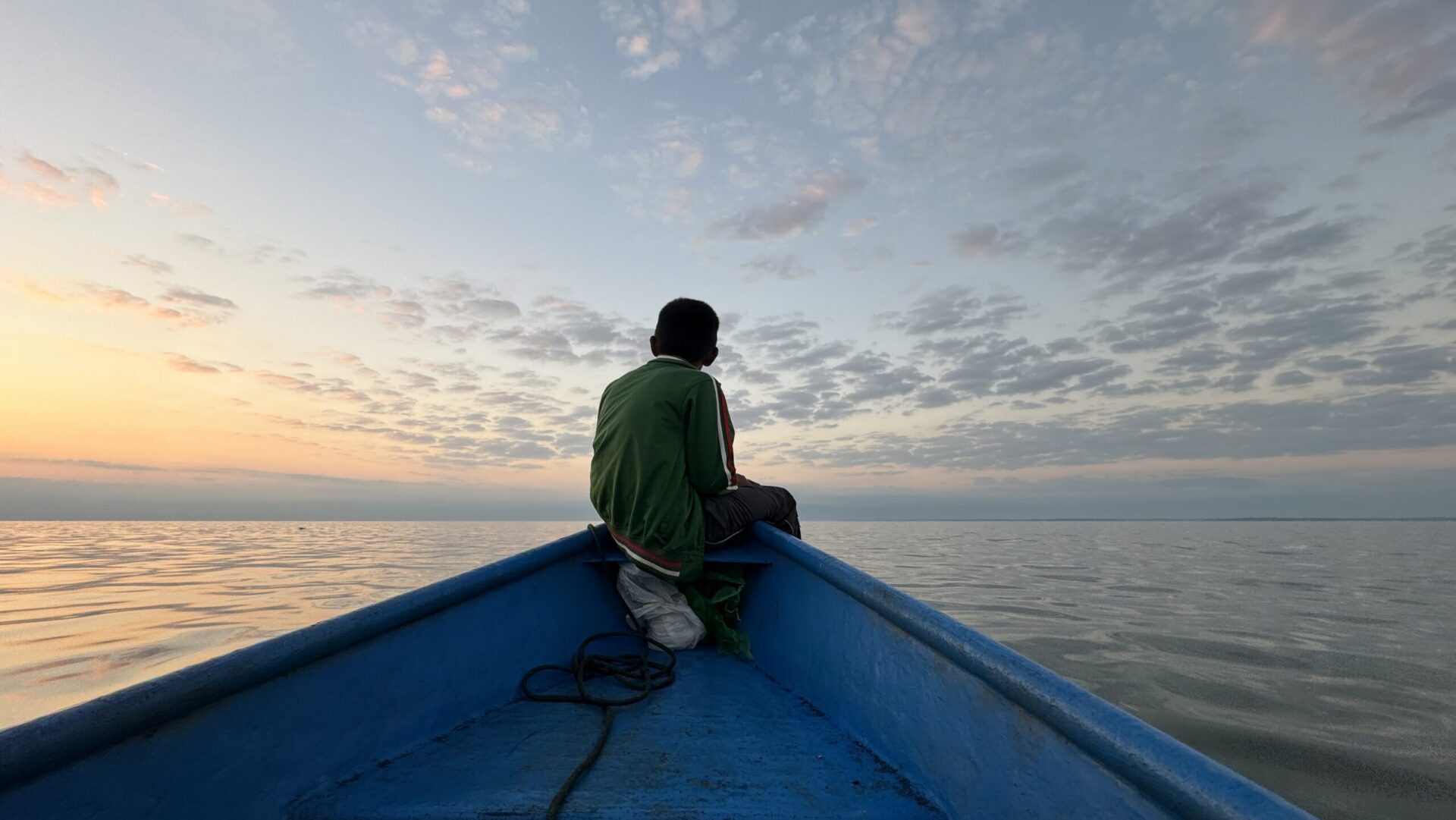On March 21, Judge Erika Aifán joined the growing group of Guatemalans exiled in Washington, DC. On twitter, she announced her resignation as High Risk Court Judge, stating, “It became clear to me that remaining in Guatemala and continuing to do my job represented a threat to my life.” Years of intimidation and threats made against her for her work as an independent judge came to a head with the latest attempt to remove her judicial immunity and the subsequent preliminary hearing that took place in early March. She was forced to make the difficult decision to flee Guatemala after receiving word that her judicial immunity would likely be removed.
Since 2016, Aifán had served as Judge for High Risk Court “D,” overseeing key cases of high- level corruption and transitional justice. Recognized by the US State Department as a “Woman of Courage” in 2021, Aifán in her work as an independent judge has garnered full support from the US and broader international community. That work, however, has come with risks. In 2019, the Inter-American Commission on Human Rights granted her precautionary measures, demanding her protection by the Guatemalan government in the face of intense defamation campaigns against her on social media, surveillance, and espionage. Most recently, her role in the Parallel Commissions case and investigations into the alleged illegal funding of Giammattei’s 2019 campaign has drawn attention and attracted pushback from the Attorney General’s Office. “My departure makes me feel sad because in fact I see that structures have been undermining the rule of law, and some institutions of the justice sector are being used to persecute those of us fighting and working against corruption and impunity,” she explained.
The International Observatory for Human Rights in Guatemala lent its support to Aifán , condemning “the systematic pattern of repeated attacks, persecution and criminalization of independent justice operators by state authorities and groups interested in consolidating a system of corruption and impunity.” According to the Convergence for Human Rights, her resignation and subsequent exile are “a severe blow to the fight against impunity.” Aifán was replaced by Judge Edwin Ramírez, who upon taking over her caseload in the Rancho Bejuco case, denied press access to the courtroom.
The loss of Aifán serves as a blow to judicial independence that will have lasting effects on the judicial system. According to Kim-Mai Vu, Advocacy Coordinator for Peace Brigades International-Switzerland, “The collapse of the justice system translates directly into threats and risks for defenders.” According to Aifán,“What happened to me is an indication of just how bad things have become.”
High-Risk Court Judge Pablo Xitumul Stripped of his Position
On March 22–one day after Aifán resigned and fled the country–the Guatemalan Supreme Court ruled to remove Judge Pablo Xitumul from his position in High Risk Court “C.” The court ruled to remove his judicial immunity on February 9, a move which was widely criticized. “We strongly condemn the decision taken by the Supreme Court of Justice of Guatemala in the case of Judge Pablo Xitumul, which we consider a grave attack on his independence, and an unacceptable action that seeks to frighten and intimidate justice operators in the country,” stated the International Observatory for Human Rights in Guatemala. According to Xitumul, “This was an orchestrated plan to get Judge Aifán and me out.”
Xitumul is known for his work as an indepedent judge, having presided over high-level cases of corruption and transitional justice, including the 2013 Rios Montt genocide case.
Bernardo Caal Released from Prison on Good Behavior
After over four years in prison, political prisoner Bernardo Caal Xol was released from the penitentiary in Cobán; the judge ordered his early release for good behavior. According to Erika Guevara-Rosas, Americas director at Amnesty International, “It’s great news for Bernardo, his family and Guatemala’s Indigenous Mayan Q’eqchi’ communities that he can leave prison and be reunited with his loved ones after more than four years of being a prisoner of conscience. However, Bernardo remains convicted of a crime he did not commit and thus the Guatemalan authorities continue to criminalize him for his work in defense of human rights and the environment.”
In spite of a lack of evidence, Caal was sentenced to seven years and four months in 2018 for the alleged crimes of aggravated robbery and aggravated illegal detention. According to the UN Special Rapporteur on the rights of indigenous peoples, the mounting spurious charges against Caal “are consistent with the patterns of criminalization directed at those that defend their land and the environment.” Caal was targeted for his role as a community leader in resistance to two hydroelectric projects on the Cahabon River, a sacred water source to the surrounding Q’eqchi communities.
Guatemala continues to be one of the most dangerous countries in the world for human rights and environmental defenders like Caal. According to the latest Global Witness report, thirteen environmental activists were killed in 2020 in Guatemala.
Son of Human Rights Defender Arrested and Beaten in El Estor
Julio Toc Mucu was apprehended by police on March 22 around noon near his home in El Estor, Izabal and was brought to the Penitentiary Center in Puerto Barrios where he was reportedly beaten. On March 24, he had his initial hearing and was released on his own cognizance pending trial. He will be required to sign at the courthouse as he awaits trial twice a month.
Toc is being charged with “incitement to commit a crime,” allegedly in connection with his participation in a protest that was violently repressed on October 21, 2021. Twelve other arrest warrants related to the protest are rumored to have been issued soon for members of the Fishermen’s Guild who were involved in the protest last year. Toc, however, was not present at the demonstration and, according to the Fishermen’s Guild of El Estor, “has been confused with another person.”
Toc is the son of Julio Ancelmo Toc, vice president of Fishermen’s Guild and a member of the Ancestral Indigenous Council in El Estor. Since the October 2021 protest and subsequent imposition of a state of siege, in which thousands of military and police occupied the community, members of the Fisherman’s Guild and Ancestral Indigenous Council have been persecuted by government authorities. Members and their families report sexual harassment, surveillance, and illegal raids at the hands of police and military. Intimidation and harassment have continued since the state of exception was officially lifted in early December.
Transitional Justice Cases Hang in the Balance
Just two months after the historic verdict convicting five former civil patrollers with crimes against humanity and establishing reparations to the survivors, the Achi Women face yet another challenge to justice. On March 24, the Guatemalan Solicitor General’s Office appealed the ruling, arguing that the reparations measures contradict the constitution and are already addressed in the Peace Accords.
Responding to the appeal, the Achi Women proclaimed their commitment to continue defending the sentence, stating, “Our struggle will serve so that future generations will know that great injustices cannot go unpunished.”
In spite of ongoing attacks on the judicial system, other key cases of transitional justice are continuing, including the Death Squad Dossier, Rancho Bejuco, and Tactic cases.

